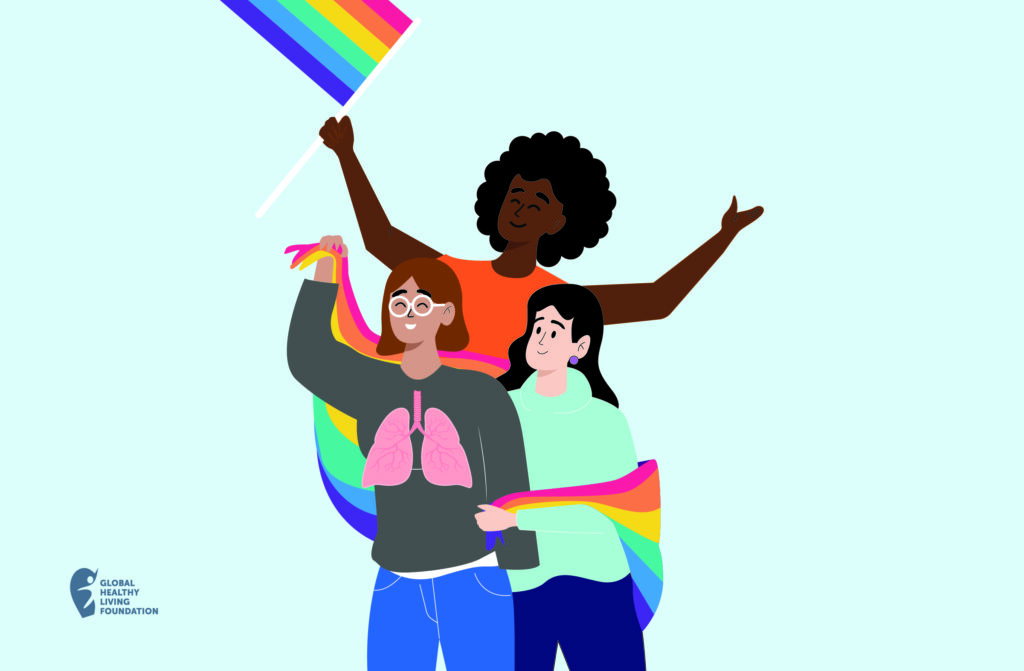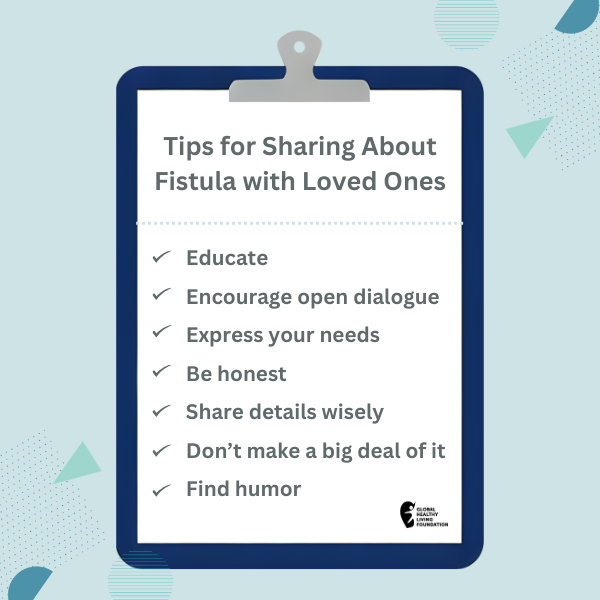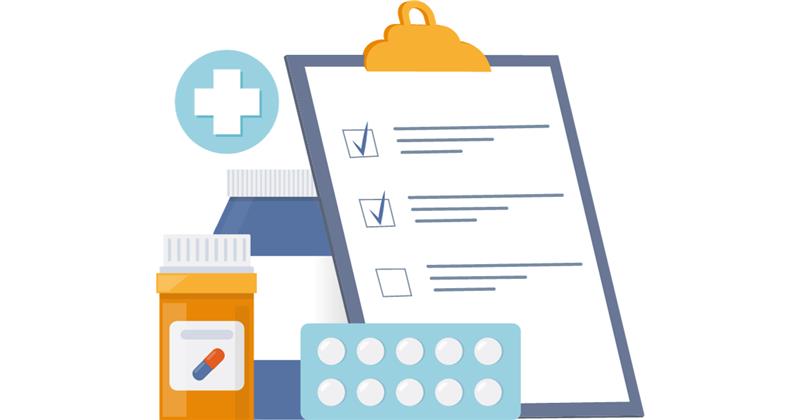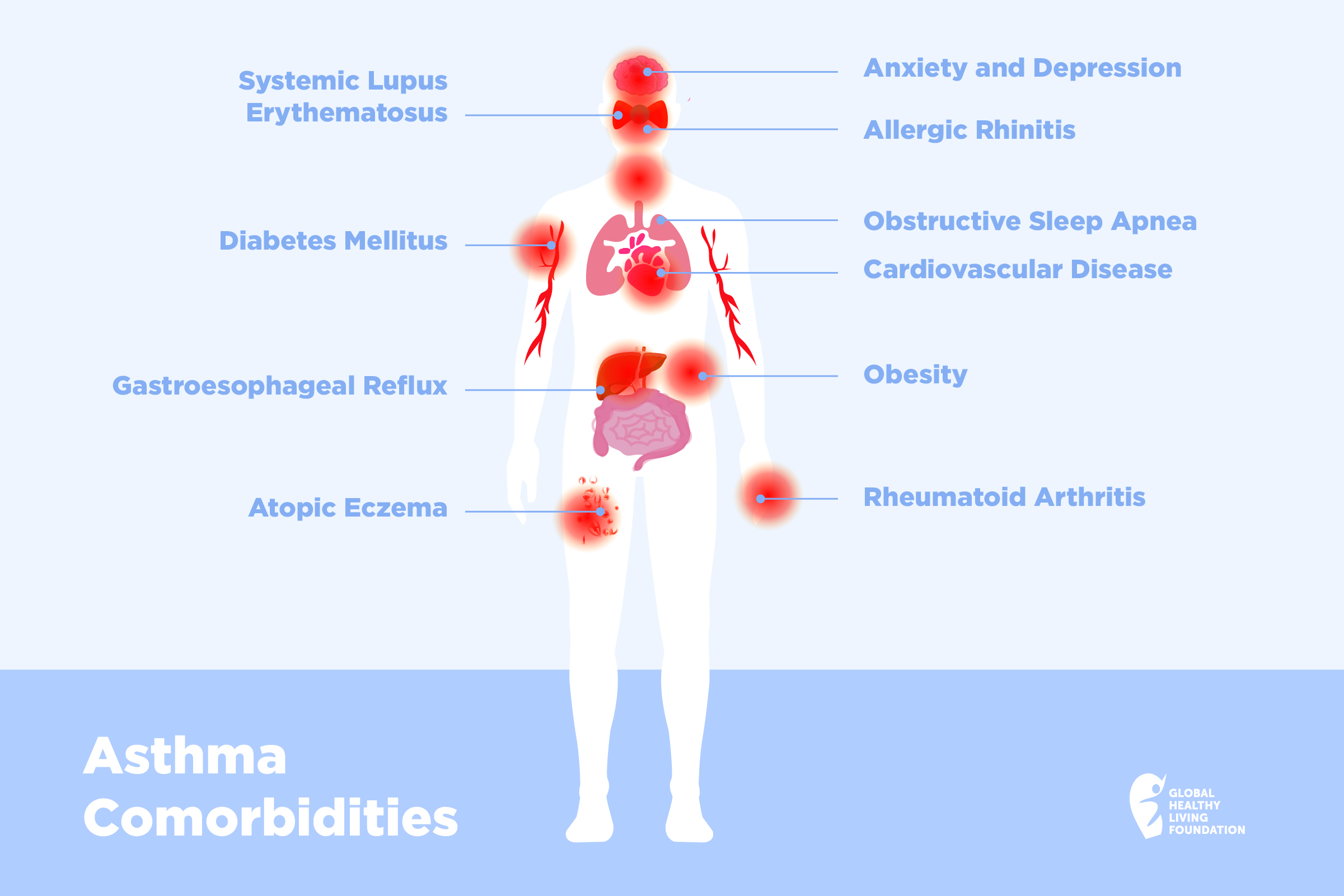Take charge of your asthma and associated conditions. Get tips on teaming up with specialists and confidently advocating for your care.
Asthma and the LGBTQ+ Community: How to Ensure You’re Getting the Care You Need
Asthma and the LGBTQ+ Community: How to Ensure You’re Getting the Care You Need
February 13, 2023
Krystal Jagoo

Check out “Our Guide to Personalizing Your Asthma Care” for more information on this topic.
Unfortunately, people who are part of marginalized groups, including LGBTQ+ communities, struggle to receive suitable medical attention. Asthma requires regular care by a provider, so finding the right doctor who makes you feel comfortable and safe to discuss what’s bothering you, your individual preferences and needs, and your LGBTQ+ identity is key to managing your condition.
Here, a few patient and expert tips to ensure you’re getting the asthma care you need and deserve.
Understanding Your Asthma Risk
When it comes to asthma, the LGBTQ+ community is disproportionately affected. A 2019 study published in the Annals of Allergy, Asthma & Immunology reported higher rates of asthma among LGBTQ+ adults when compared to those who identify as heterosexual.
In terms of risk factors, members of the LGBTQ+ community have higher rates of smoking, alcohol and substance use, physical inactivity, lack of access to health care, and nonuse of preventative care, suggest researchers. What’s more, LGBTQ+ communities have been found to experience higher levels of stress, which can often exacerbate inflammation and trigger an asthma attack.
Recognizing a Safe Health Care Space
In the same way that supportive loved ones can help LGBTQ+ patients manage their asthma, a welcoming health care team can make a difference in providing much-needed services, especially for individuals who may be marginalized in other ways as well.
To ensure that LGBTQ+ family members feel welcome, it is important that the entire care team — including the receptionist, medical assistant, laboratory technicians, cleaning staff — understand their responsibility to respect patients and help to make them feel safe.
The American Medical Association recommends that physicians take the following steps to make their offices welcoming to LGBTQ+ communities:
- Post a nondiscrimination policy, which may state: “This office appreciates the diversity of human beings and does not discriminate based on race, age, religion, ability, marital status, sexual orientation, sex or gender identity.”
- Display materials from LGBTQ+ organizations.
- Make intake forms more inclusive by consulting the Guidelines of Care for Lesbian, Gay, Bisexual and Transgender Patients. For example, if the paperwork assumes binary gender, it may make it a great deal more difficult for gender diverse family members to feel comfortable to discuss their needs, especially if they have already had negative experiences with transphobia in health care spaces.
In addition to following such recommendations, health care providers should also be open to feedback from LGBTQ+ patients with asthma. In other words, as you navigate your doctor’s office, don’t be afraid to speak up if you feel you’re not receiving proper access and unbiased asthma care.
“I’ve learned to navigate speaking with health care professionals, and demanding respect when it comes to my treatment,” says Carly H., a Black member of the LGBTQ+ community who has had asthma since birth. “I’m also a researcher, so I will bring them research. I think that enables them, unfortunately, to remove that bias. I say unfortunately because they shouldn’t have this bias. In reality, it should just be this person is a human being coming to me for care.”
Being Open and Honest
When managing a chronic condition like asthma, it’s crucial for people to feel comfortable to openly discuss their needs with those providing health care to them. Having an open and honest discussion with your doctor about your sexual identity can help ease stress and anxiety, which is linked to an increased risk of asthma, says pulmonologist Barbara Yawn, MD, MSc, MSPH, FAAFP.
Carly, who also lives with lupus, says she tries to be completely honesty with all of her doctors. “In the initial discussion with my rheumatologist, she asked if there was any chance I could be pregnant, so I made a joke about being 100 percent certain as I am a lesbian with a partner,” recalls Carly. “She noted it in my chart.”
Adds Dr. Yawn: “And if someone is having hormonal changes associated with their sexual identity, like the addition of estrogen or blocking of testosterone, we know that those kinds of changes can have an impact on asthma, too.”
Managing Asthma as a Family
Whether individuals think of biological family or loved ones they consider to be chosen family, LGBTQ+ communities deserve access to equitable treatment to manage their asthma care, which includes being able to discuss how factors related to family intersect with their health.
“I think that a patient should be treated, not just disease-specific, but around quality of life,” says Carly, “so they need to know the aspects of my life that are important.”
For Carly, this includes how asthma will impact each member of her family. “My son has allergies, I have asthma, and my partner has allergies, so we all have to be mindful of what may be triggers for each other.”
Involving your family in your treatment can help provide another layer of support — in finding the right doctor, getting a proper diagnosis and treatment, and managing your asthma triggers.
“It really is helpful if you have friends or loved ones who you can talk to about your asthma, who understand your needs,” says Yawn. “Who knows how to use your inhaler? Who knows where your inhalers are? You may be a little shy about telling somebody not to smoke around you, but families of patients with asthma can support them by telling others not to smoke around them.”
The bottom line: This is your health — and your life — so it’s essential to get the unbiased and supportive care you need and deserve.
“Having had time to think about the things that have contributed to my asthma journey, it’s important that I carry that with me, and that I lead with that,” says Carly. “I have to take all aspects of my identity with me in every space that I go, and so that same thing is true for each part of health care.”
Get Asthma Support
If you would like to receive emails about asthma support and education, please subscribe to the Global Healthy Living Foundation here.
This article was made possible with support from Amgen and AstraZeneca.
Curry C, et al. Lifetime asthma prevalence and correlates among us youths by sexual identity and Race/ethnicity. American Journal of Public Health. 2017—2019. doi: https://doi.org/10.2105/ajph.2020.305664.
Interview with Barbara Yawn, MD, MSc, MSPH, FAAFP, a pulmonologist.
Interview with Carly Harrison, an asthma patient and researcher.
Kann L, et al. Youth Risk Behavior Surveillance — United States. Morbidity and Mortality Weekly Report. 2018. doi: http://doi.org/10.15585/mmwr.ss6708a1.
Veldhuis CB. Asthma status and risks among lesbian, gay, and bisexual adults in the United States. Annals of Allergy, Asthma & Immunology. doi: https://doi.org/10.1016/j.anai.2019.01.021.
Whittington, C et al. The Lives and Livelihoods of Many in the LGBTQ Community are at Risk Amidst COVID-19 Crisis. The Human Rights Campaign. https://assets2.hrc.org/files/assets/resources/COVID19-IssueBrief-032020-FINAL.pdf?_ga=2.223840990.410008025.1670822501-134447717.1670822501.
SUBSCRIBE TO GHLF
RELATED POST AND PAGES
_
Was this article helpful?
YesNo







